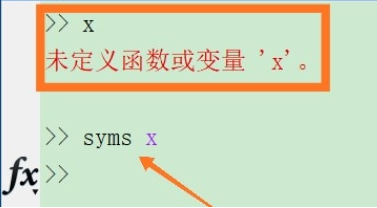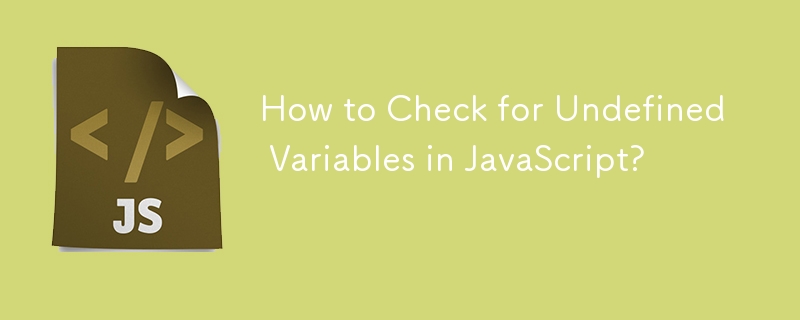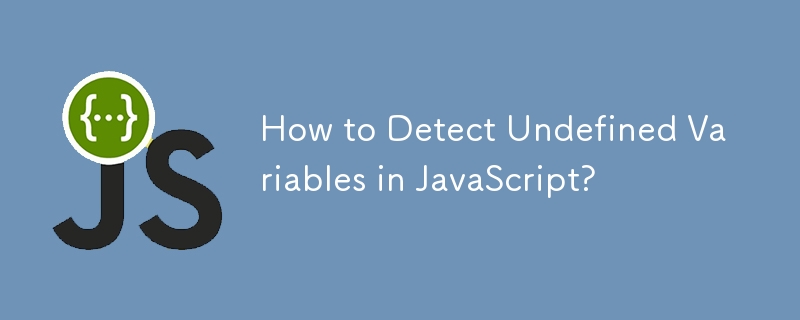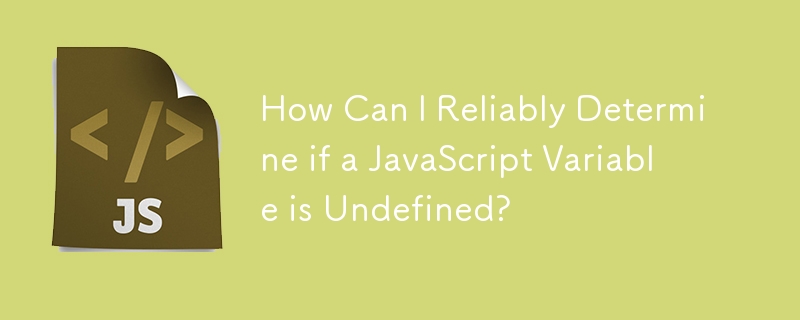Found a total of 10000 related content

How to define variables in matlab - how to define variables in matlab
Article Introduction:Recently, many friends have consulted the editor about how to define variables in matlab. Next, let us learn how to define variables in matlab. I hope it can help everyone. 1. First open the command line window of the matlab software editor. Symbol variables must be defined in advance, otherwise an error will be reported. Take x as an example to define variable symbols using "syms space variable name", as shown in the figure below. Once you have defined your symbolic variables, you can start using them. When you enter the command to delete a cube on the command line, the following results will be displayed, as shown in the figure below. 3. Then define a numeric variable, which can be defined at any time during use and can be directly assigned to the variable. For example, to define the variable a=1, you can directly enter a=1 on the command line, as follows
2024-03-04
comment 0
2009

jquery definition variable usage
Article Introduction:In front-end development, it is often necessary to use jquery, a js library, to implement various functions. The definition and use of variables in jquery are also part of the knowledge we need to master. This article will explain the definition and use of variables in jquery. 1. jquery variable definition In jquery, use the var keyword to define variables, as shown below: ```javascript// Define a variable var num = 1; ``` also supports defining multiple variables at one time, separated by commas That’s it:```
2023-05-23
comment 0
1595

How to define variables in golang language
Article Introduction:Method of defining variables: 1. Use the var keyword to define one or more variables. The syntax is "var variable name type"; 2. Use the const keyword to define constants. Constants are unmodifiable values, and their values cannot be changed after they are defined. The syntax is "const constant name type = value"; 3. Use type inference to simplify the definition of variables. For example, you can use the := operator to define a variable and have the compiler automatically infer its type. The syntax is "variable name := value"; 4. Define multiple variables at the same time; 5. Blank identifiers, etc.
2023-12-15
comment 0
836

How to write predefined variables in php
Article Introduction:Predefined variables are special variables automatically created by the interpreter in PHP. They contain information about the script execution environment and cannot be written directly. Predefined variables in PHP include: constant variables (such as __LINE__, __FILE__), special variables (such as $this), environment variables (such as $_SERVER), and global variables (such as $GLOBALS). You can access predefined variables using standard PHP variable syntax.
2024-04-29
comment 0
808

Learn variable definition and assignment in Golang
Article Introduction:The definition and assignment of variables in Golang require specific code examples. In Golang, the definition and assignment of variables are very simple and intuitive. This article will introduce the definition and assignment of variables in Golang through specific code examples. First, let's take a look at the definition of variables in Golang. In Golang, the definition of variables can be done using the var keyword. The specific syntax is as follows: var variable name type. Among them, var represents the definition keyword of the variable, and the variable name is the variable you define.
2024-01-18
comment 0
934

User-defined variables vs. local variables in MySQL?
Article Introduction:User-defined variables are also called session-specific variables. It is a loosely typed variable that can be initialized somewhere in the session and contains the value of the user-defined variable until the end of the session. User-defined variables are prefixed with the symbol @. For example: @anyVariableName; There are two ways to initialize user-defined variables. You can use SET command or use SELECT query. The first method is as follows: SET@anyVariableName=anyValue; The second method is as follows: SELECT@anyVariableName:=anyValue; If you do not use the colon (:) in the SELECT query, it will be evaluated as an expression. Knot
2023-09-06
comment 0
1392

Detailed explanation of how Golang variables are defined
Article Introduction:Detailed explanation of the definition method of Golang variables, specific code examples are required. In the Golang programming language, variables are the basic unit for storing and operating data in the program. The definition of variables is one of the most basic operations in programming. This article will introduce in detail how to define variables in Golang and provide specific code examples. How to define variables: In Golang, there are many ways to define variables. We will introduce these methods one by one below. Method 1: Use the var keyword. Use the var keyword to define one or more
2024-01-18
comment 0
478

How to define global variables in python
Article Introduction:In Python, global variables can be defined anywhere outside a function. When using global variables inside a function, you need to use the global keyword to declare the variable as a global variable. The following is an example: #Define global variable global_var=10defmy_function():#Use global variable print(global_var)defanother_function():#Modify global variable globalglobal_varglobal_var=20#Call function my_function()#Output: 10another_function()my_function()# Output:
2024-03-01
comment 0
857

How to parse variable definitions in Golang language
Article Introduction:Detailed explanation of the definition method of variables in Golang language In Golang language, the definition of variables is a very important basic knowledge. This article will introduce in detail how to define variables in the Golang language and provide specific code examples. The basic definition of variables in Golang. The definition of variables uses the keyword var. The syntax format is as follows: var variable name type. For example, define an integer variable a: varaint. Assignment of variables In Golang, the assignment of variables uses the equal sign = for assignment. operate,
2024-01-11
comment 0
1131

How to Identify Undefined Variables in PHP?
Article Introduction:Identifying Undefined Variables in PHPIn PHP, the isset() function allows you to check if a variable has been set, but it does not distinguish between undefined and null values. To explicitly check for undefined variables, similar to the JavaScript s
2024-10-19
comment 0
445

Can JavaScript variables be defined casually?
Article Introduction:Can JavaScript variables be defined casually? With the continuous development of the Internet, the JavaScript programming language has become an extremely important tool. Whether it is a web-based application, a mobile application, or a desktop application, JavaScript is required. For beginners, the most basic knowledge is the definition of variables. However, can the definition of JavaScript variables be "arbitrarily defined"? JavaScript variable definition is very simple and straightforward, just use
2023-04-24
comment 0
556

How to define variables in python
Article Introduction:In python, variables can be defined by assignment. You can use the equal sign (=) to assign a value to a variable. The naming of variables follows some rules: variable names can only contain letters, numbers, and underscores. Variable names cannot start with a number. Variable names are case-sensitive. For example, name and Name are different variable names. Variable names cannot be Python keywords, such as if, for, etc. Here are some examples of defining variables: name="John"#String type variable age=25#Integer type variable height=1.75#Floating point type variable is_student=True#Boolean type variable you can change at any time as needed The value of the variable, for example: nam
2024-03-01
comment 0
642


How to Detect Undefined Variables in JavaScript?
Article Introduction:Detecting Undefined Variables in JavaScriptDetermining whether a variable is defined or undefined is crucial in JavaScript coding. A common error...
2024-11-01
comment 0
481

How to define variables in golang
Article Introduction:The method of defining variables in golang: 1. Declare the variable and assign the initial value "var age int = value"; 2. Declare the variable but do not assign the initial value "var age int"; 3. Use the short variable declaration "age := value"; 4. For variables of array, slice, map and function types, "var numbers []int = value" or "numbers := value". It should be noted that variable names in the Go language follow the camel case naming method, with the first letter in lowercase representing private variables and the first letter in uppercase representing public variables.
2023-12-22
comment 0
809

Correct way to define variables in Golang
Article Introduction:How to correctly define variables in Golang requires specific code examples. In Golang, correct variable definition is one of the keys to ensuring code quality and readability. Good variable definition can increase the maintainability and scalability of the code. This article will introduce how to correctly define variables in Golang and provide specific code examples. Using the keyword var for variable declaration Using the keyword var for variable declaration is the most basic and commonly used way in Golang. The syntax is as follows: var variable name type. For example, declare a
2024-01-18
comment 0
1091
PHP任务学习3:静态变量与自定义常量
Article Introduction:PHP任务学习3:静态变量与自定义常量。静态变量的声明与使用 自定义常量的使用方式 什么是静态变量? 静态变量是指用static声明的变量,这种变量与局部变量的区别是,当静态
2016-06-13
comment 0
1001

Golang variable definition specifications and techniques
Article Introduction:Overview of specifications and techniques for variable definition in Golang: In Golang, variables are the most basic data storage unit in the program. Proper use of variable definition conventions and techniques can improve code readability, maintainability, and performance. This article will introduce some specifications and techniques for variable definition in Golang, and provide specific code examples. Naming conventions for variables: In Golang, there are certain conventions for naming variables. Variable names should use camelCase, with the first letter lowercase. If it is a private variable, it should be named in camel case.
2024-01-13
comment 0
476


















